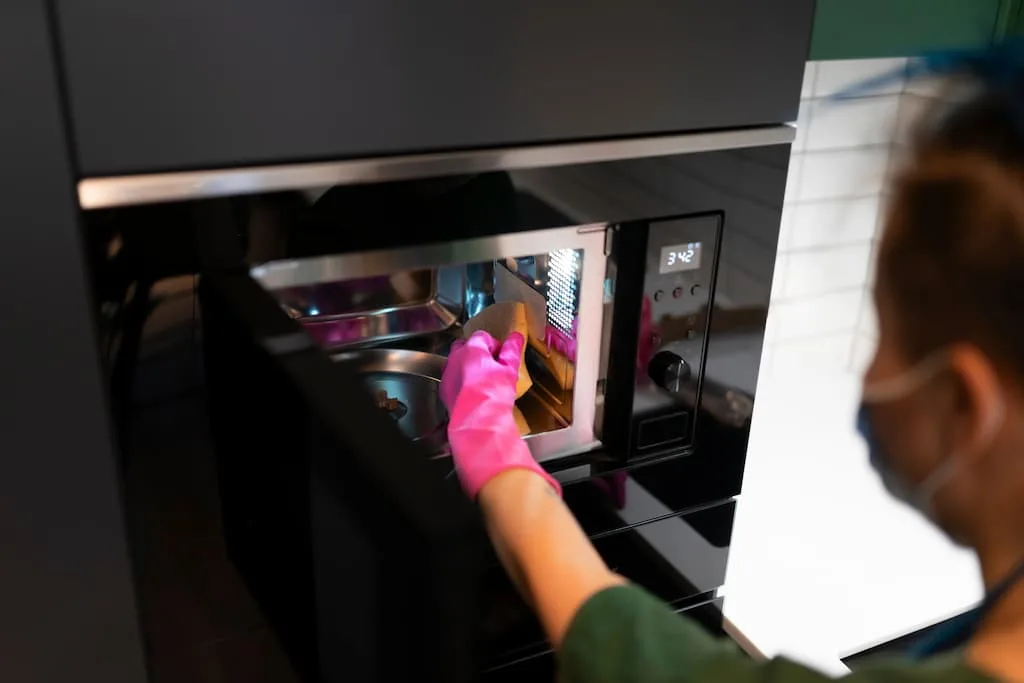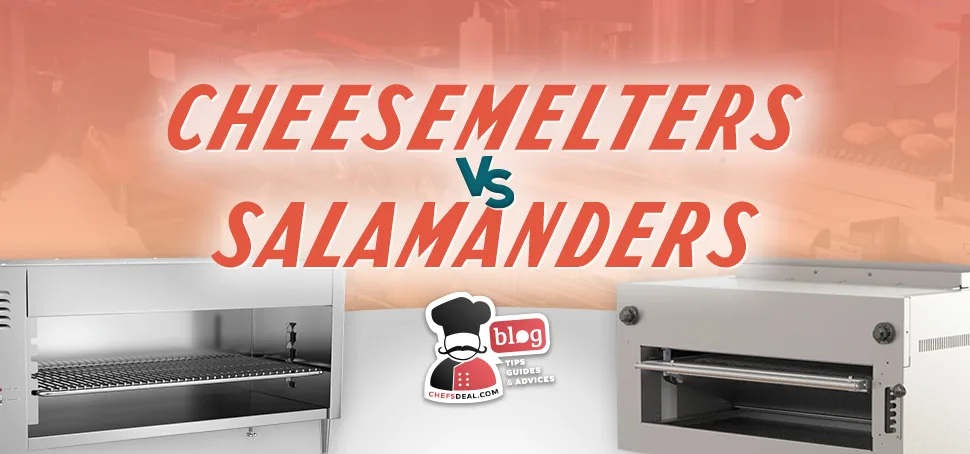Microwaves are a kitchen staple used for a wide range of things, from heating leftovers to baking mug cakes. Especially in commercial kitchens, they facilitate many tasks. In today’s fast-paced world, commercial microwaves have become indispensable kitchen appliances, revolutionizing the cooking, reheating, and defrosting of food. As convenient as they are, it is crucial to prioritize microwave safety when using them to prevent potential hazards and ensure their efficient and prolonged operation.
In this article, we will explore microwave safety tips, including cleaning and maintenance, to ensure the microwave’s safety and lengthen its lifespan. By understanding and implementing these best practices, users can maximize both the safety and longevity of their microwaves, allowing for worry-free and long-term use.
Safest Materials To Microwave
The safest materials to microwave are those that do not melt, catch fire, or release harmful chemicals into the food when heated in a microwave. It’s important to follow the manufacturer’s guidelines and use only microwave-safe materials when using a microwave oven. Some materials that provide microwave safety include:
Ceramic: Ceramic dishes and containers are the most used dish in microwaves since they are generally microwaveable. You can use ceramic materials in a microwave with microwave-safe labels and no metallic paint or trim.
Glass: Glass dishes and containers are also generally safe to microwave as long as they are microwave safe and do not have any metallic paint or trim. Remember not to put them on a cold surface after taking them out of the oven since it can cause them to crack.
Plastic: it’s important to check for the microwave-safe label, especially in plastics, since they are more likely to include toxic chemicals. Looking for containers specifically designed for microwave use and always checking the microwave-safe label is critical. Avoid microwaving plastics with recycling codes 3 or 7, as they might contain potentially harmful chemicals.
Paper: Paper towels, wax paper, and parchment paper can help absorb excess moisture or prevent splatters in microwaves. However, ensure they are not in direct contact with the food you microwave.
Metal: While putting metal in the microwave is generally not recommended, there are a few exceptions. Aluminum foil can be used sparingly to cover certain areas of food, like shielding a pie or a meal to prevent burns. Some metal cooking trays are also safe if they don’t come directly with the food. However, avoiding microwaving metal containers or dishes is crucial, as they can cause sparks and potentially damage the microwave.

What Shortens The Life Of A Commercial Microwave?
Normally, an average commercial microwave has a lifespan of about 10 years with standard use. But several factors can shorten the lifespan of a microwave oven. We made a list of some of the factors that may shorten the life of a commercial microwave:
1. Frequency Of Use
The more often a microwave is used, the more wear and tear it will experience, leading to problems and ultimately reducing its lifespan. Even if it is commercial grade, continuously using it for long hours can affect its power source and components.
2. Improper Maintenance And Cleaning
Neglecting regular and thorough cleaning can lead to issues like food particle buildup and grease accumulation, which can cause malfunctions and reduce the lifespan of your microwave.
3. Age
Just like any other appliance, microwaves will naturally experience wear and tear over time. Even with proper maintenance and use, the performance of a microwave may gradually decline as it ages.
4. Quality
The quality of the microwave can also affect its lifespan. Higher-quality microwaves are generally more durable and reliable, providing a longer lifespan, while lower-quality microwaves may have a shorter lifespan due to lower-quality components.
5. Putting Metal
Metal pushes microwave energy back to heat and cook the food, making them one of the most improper materials in microwave ovens. Putting metals in the microwave can cause a sparkle, leading to a fire or causing serious damage to the oven. Glass, ceramics, and plastics allow microwaves to pass through to the food, making them microwave-safe, but not all of them.
What To Do To Maximize The Lifespan Of A Microwave?
There are 8 points you can follow to help make a commercial microwave last longer and therefore enhance microwave safety as well:
Follow the Manufacturer’s Guidelines: It’s essential to read the owner’s manual and follow the manufacturer’s instructions for using and maintaining your microwave. These guidelines help you use and care for your microwave correctly, ensuring microwave safety and longevity.
Clean the Microwave Regularly: Regular cleaning is key to keeping your microwave in good shape and extending its lifespan. Cleaning the inside and outside of the microwave, including the turntable and removable parts, is essential. You can use a mild detergent or microwave-safe cleaner and a soft cloth. Avoid using harsh chemicals or abrasive scrubbers that could make scratches on the surfaces of your microwave.
Avoid Overheating the Microwave: Overheating your microwave can damage the components of your microwave. Adhering to the recommended cooking times and power levels the manufacturer provides is essential. Following these guidelines will help ensure microwave safety and keep your microwave working properly.
Avoid Using it for Non-recommended Purposes: Using the microwave for non-recommended purposes, such as heating very large or metal objects, can cause problems that risk the microwave’s safety and shorten its lifespan.
Follow Regular Maintenance: Like any other appliance, your microwave needs regular maintenance. Replacing the air filter when necessary and cleaning the exhaust fan are simple yet effective tasks to ensure the proper functioning and extend the oven’s lifespan.
Avoid Repairing the Microwave Yourself: If the microwave develops a problem, it’s better and important to leave it to a professional. Attempting to repair the microwave yourself can cause further damage and shorten its lifespan. You can contact the manufacturer’s customer service or a qualified technician to handle any repairs.
Address Issues Immediately: If you notice any strange sound, noise, scent, or malfunctions, address them as soon as possible. Unusual symptoms may signal a problem that requires expert intervention. Don’t forget to contact the manufacturer’s customer service or a qualified technician in a case. Acting promptly can help prevent further damage and ensure your microwave works well.
Avoid Opening the Door While the Microwave is Running: To prevent blowing the safety fuse of the oven, avoid opening the oven’s door suddenly while the timer is running.
Proper Cleaning Tips For Microwave Ovens
Cleaning and maintenance are the first essentials to prevent damage and breakdowns, provide microwave safety, and extend the lifespan of a microwave oven. While cleaning your microwave oven, avoid using scrubs and items that make scratches, such as steel wool, not to damage your oven’s interior. Apart from this main point, there are 4 main steps to follow while cleaning a microwave oven.

1. Remove The Crumbs
Before cleaning the little parts and stains from the oven’s interior, use a cloth or paper towel to remove the extra crumbs. This will reduce the cleaning time a lot.
2. Remove The Detachable Parts
Most microwaves feature removable rotating trays to provide easy cleaning. After removing the crumbs, you can move the removable parts and clean the spilled debris. Don’t forget to check the manufacturer’s handbook before removing the parts.
3. Clean The Difficult Food Residues
Clean the stubborn food stains in the interior of the oven. Using a microfiber towel or cloth soaked in warm water and dish soap with the help of a microwave cleaner will easily get rid of the stains.
4. Use Water For Hardened Food
The most demanding part of cleaning a microwave is the hardened and crusty food stuck in the oven. It is no more an issue with this cleaning trick. You can easily get rid of the hardened food residues by simply using water and lemon juice. The steam the lemon juice and water mixture creates will soften the crusty food, making it easier to clean without scrubbing. To boil the water, you can set the oven for 7 minutes and let the water stay for an extra 5 minutes in the oven to ensure the steam softens the residues. Then by simply wiping with a towel, you can easily clean your microwave.
Conclusion
Commercial microwave ovens handle heavy usage and provide various benefits in a busy commercial kitchen. To ensure microwave safety and maximize its lifespan, it is crucial to follow proper usage guidelines and maintain a regular cleaning and maintenance routine. By using microwave-safe materials such as ceramic, glass, and microwave-safe plastics, potential risks and hazards can be minimized.
Additionally, regular cleaning and maintenance, avoiding excessive overheating and improper usage, and promptly addressing any issues that arise are key factors in extending the lifespan of a commercial microwave. By adhering to these best practices, foodservice establishments can enjoy a worry-free and long-term experience with their microwave, ensuring both safety and efficiency. Remember, a well-maintained and properly used microwave not only prolongs the lifespan of the appliance but also prioritizes the well-being of its users.






